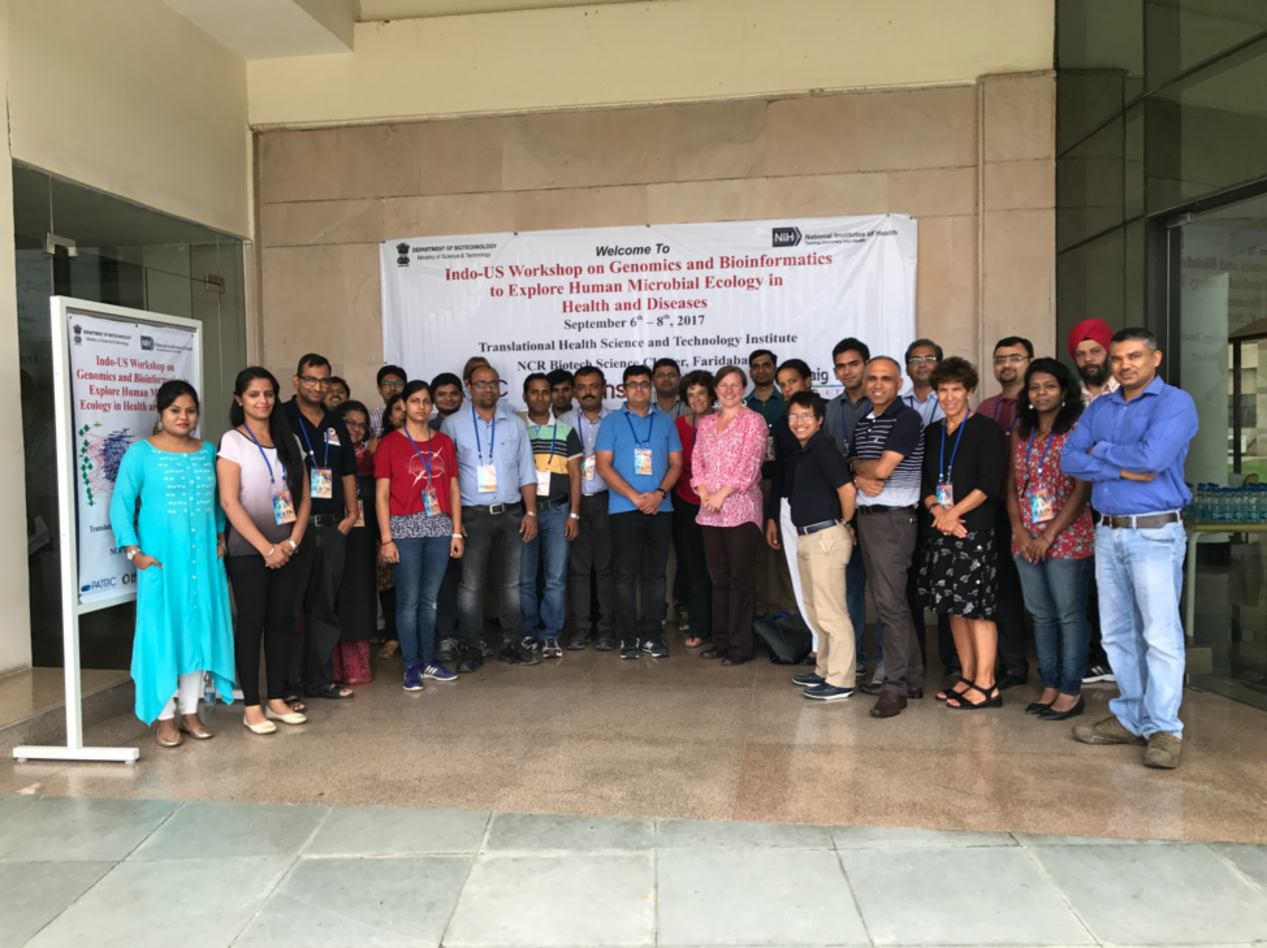Translational Health Science and Technology Institute (THSTI) Training
In September 6-8, 2017, Translational Health Science and Technology Institute (THSTI), NIAID Division of Microbiology and Infectious Diseases (DMID) , NIAID PATRIC Bioinformatics Resource Center/University of Chicago and NIAID Genomic Center for Infectious Diseases at J. Craig Venter Institute participated in three days training in Delhi, India for Indo-US Workshop on Genomics and Bioinformatics to Explore Human Microbiome Ecology in Health and Diseases. The Translational Health Science and Technology Institute (THSTI) hosted the workshop. Representatives from NIAID and PATRIC also participated in the event. The JCVI team gave an overview of the GCID, and seminars on Sequencing and Data QC, Genome Typing and PanGenome Analysis, Microbiome (16S and ITS) Data Analysis, and Analysis of Shotgun Metagenomic Data. The team also participated in one-on-one sessions to analyze THSTI datasets. The workshop is the latest in the outreach and training program of the GCID (and its predecessor awards, MSCID & GSCID), and strengthens the growing relationship between NIAID, JCVI and research institutions in India.

Workshop Organizers
- Translational Health Science and Technology Institute (THSTI), Faridabad
- NIAID Division of Microbiology and Infectious Diseases (DMID), NIH
- NIAID PATRIC Bioinformatics Resource Center/University of Chicago/ANL
- NIAID Genomic Center for Infectious Diseases at J. Craig Venter Institute (JCVI)
Background
The idea of a human microbiome workshop emerged as a follow up of the collaboration between NIAID and THSTI (more specifically the DBT-Inter-institutional Program on Preterm Birth). The central aim of this workshop would be to build analytical capacity amongst young scientists in THSTI and other research institutes across India.
Objectives
The present workshop aims to advance microbiome research in India by providing training on the analysis of high throughput sequencing data and obtaining importance inferences on the
- Diversity and richness of microbial ecology
- Dynamics of microbial population in specific niche
- Interactions among microbial members and infectious diseases
- Functional attributes in the microbial genomes etc.
The emphasis will be on “hands on sessions” for the participating scientists who will be encouraged to work on their own data sets during these sessions.
Expected Outcomes
- Hands on training in analyzing high throughput sequencing data.
- Better understanding of microbial ecology and its impact in health and diseases.
- Understand different aspects of human microbiome research and its implication in public well-being.
- Develop national and international collaborations for future research.
Topics Covered in the Workshops
| Getting started in PATRIC | Assembling Genomes in PATRIC | Sequencing and Data QC |
| Annotating Genomes in PATRIC | Phenotype Predicting Using Machine Learning | Comparative Genomics |
| Genome Typing and PanGenome Analysis | Microbiome (16S and ITS) Data Analysis | SNP and MNP Variation service |
| RNA-seq and Differential Gene Expression Analysis in PATRIC | Analysis of shotgun metagenomic data | Using the PATRIC Unix/Mac Command Line Interface |
Funding
These workshops were supported by the NIAID funded JCVI Genomic Center for Infectious Disease and Indo-U.S. Vaccine Action Program (VAP).
